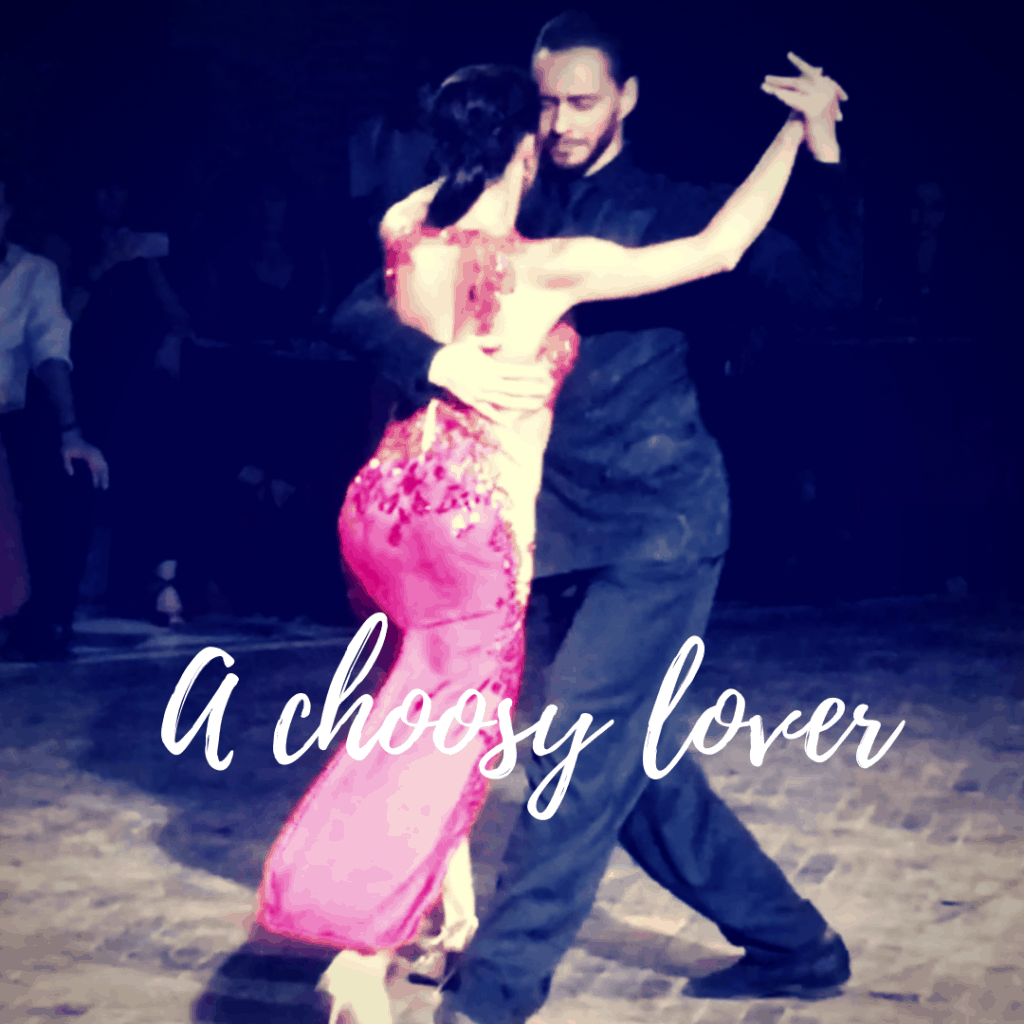Tango doesn’t choose everyone.
Every year I walk into the master workshop, I see a new crowd of beginners with bright eyes and full of wonders about the dance. They are eager to try every new step. Girls are fascinated by the feeling of their leg whipping high up in the air; men beam with a satisfactory smile when they succeed at leading a new sequence. In the milonga they dance every song with everyone and they are never exhausted. The next year, the crowd disappears and is replaced by another. The beginners come and go like waves progress to the shore, then recede to the middle of the sea, vanish. I approach my Argentine masters, their eyes brim with joy. They open their arms and throw me a hug: “So good to see you again.”
Tango is a demanding art. Once you get hooked it devours all your time and energy. In the beginning every milonga is pure joy- you dance to every song, feeling your body carried by your partner and the music, until your feet are swollen. But soon you would realize your lack of technique- your legs wobble in the heels; your body arches back when you are doing the back ocho; your partner complains about you pulling and pushing his/her arm…you sign up for every workshop, take private classes with all masters, and sky’s the limit for the money you would spend on improving your skill.
You see your progress starts leveling off and this is the moment your self-doubt kicks in: Do I lack talent in dancing? Why would I still repeat the error after practicing for so long? Should I continue if I see no improvement? In the milonga you watch others dance with elegance and ease with envy and self-pity in your eyes. You always feel you are not good enough.
You would likely have experienced some rejections too-maybe someone who always turns the face away every time your glance meet; or another person who is eager to dance with everyone in the milonga – except you. Your cheeks burn and you feel like a pariah. You hide at the dark corner until you can’t take it anymore and slip away from the door.
All the demand of money and time, emotional strain and insecurity about oneself push people away which make tango a choosy and hard-to-please lover. Only a handful of people with a wealth of patience and love can stay.
It might take you years to realize learning tango is a lengthy process, and accept bottleneck a stage which every dancer would have gone through. You would start to accept and respect the limits of your body, or you may invest in sports such as yoga and pilates to train the flexibility of your body, the strength of your core and muscles, and your body will thank you later.
You might start to see tango beyond purely aesthetic movements – an art that embodies the history, the thoughts, the sorrow and the dreams of Argentinians. If you don’t speak Spanish, you may start learning the language so to understand the poetry of the lyrics and to reach the essence of tango.
You may also realize the beauty of movements can sometimes be an illusion- a lady may have been on her autopilot and her partner might in fact, be confused about the dazzling embellishments she adds on her own; the man might have done all the fancy sequences at the expense of the lady racing around him. These dances are merely a showing off of techniques, a set of superficial movements void of connection, emotion and musicality.
The longer you stay in the community, the more respect you would gain from the others. People would see your persistence, the effort that you have invested on honing your skill. People who have been giving you cold shoulders may start to fancy dancing with you when your technique is more mature and your balance has improved.
Then you, with this newly gained confidence and understanding about the dance and yourself, become a real tanguero, the one chosen by tango.

